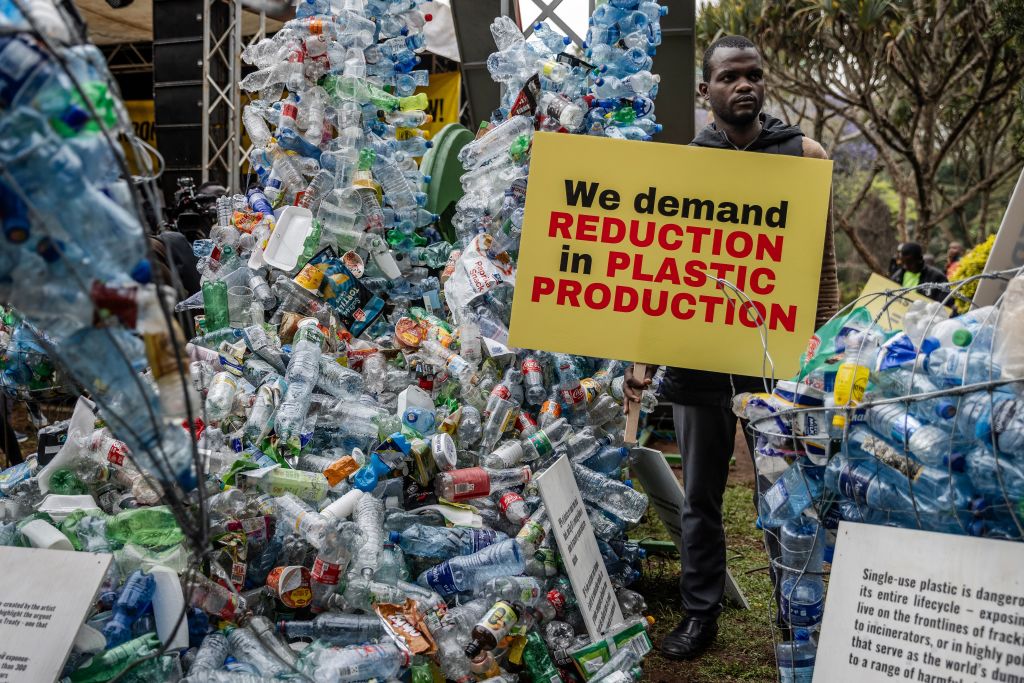Latest reports suggest that a record numbers of plastic industry lobbyists are attending global talks that are the last chance to hammer out a treaty to cut plastic pollution around the world.
The key issue at the conference will be whether caps on global plastic production will be included in the final UN treaty. Lobbyists and leading national producers are furiously arguing against any attempt to restrain the amount that can be produced, leaving the talks on a knife-edge.
New analysis by the Center for International Environmental Law (CIEL) shows 220 fossil fuel and chemical industry representatives – more plastic producers than ever – are represented at the UN talks in Busan, South Korea.
Taken as a group, they would be the biggest delegation at the talks, with more plastic industry lobbyists than representatives from the EU and each of its member states, (191) or the host country, South Korea (140), according to the Centre for International Environmental Law. Their numbers overwhelm the 89 delegates from the Pacific small island developing states (PSIDs), countries that are among those suffering the most from plastic pollution.
Sixteen lobbyists from the plastics industry are at the talks as part of country delegations. China, the Dominican Republic, Egypt, Finland, Iran, Kazakhstan and Malaysia all have industry vested interests within their delegations, the analysis shows.
The plastic producer representatives outnumber delegates from the Scientists’ Coalition for an Effective Plastics Treaty by three to one.
Read also:Economists say Cop29 deal fails to consider inflation so is not tripling of target
Approximately 460m tonnes of plastics are produced annually, and production is set to triple by 2060 under business-as-usual growth rates.
More than 900 independent scientists have signed a declaration calling UN negotiators to agree on a comprehensive and ambitious global plastics treaty, based on robust scientific evidence, to end plastic pollution by 2040.
According to the Scientists’ Declaration, the harm caused by plastic pollution cannot be prevented by improvements in waste management alone.
But the world’s plastic producers have lobbied repeatedly against caps. Countries with large fossil fuel industries such as Saudi Arabia, Russia and Iran, called the “like-minded” group, have eschewed production cuts and emphasised waste management as the main solution to the crisis.
Delphine Levi Alvares, the global petrochemical campaign coordinator at CIEL, said: “From the moment the gavel came down … to now, we have watched industry lobbyists surrounding the negotiations with sadly well-known tactics of obstruction, distraction, intimidation and misinformation.
Story was adapted from the Guardian.
